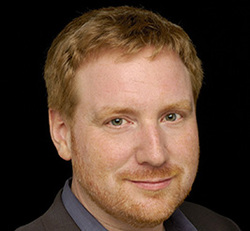Early Education and the Brain: Making Novel Connections

Speaker: Bruce McCandliss, Stanford University
Lecture Title: Early Education and the Brain: Making Novel Connections
Moderator: Linda Shaw, The Seattle Times
Commentators: Hon. Brian Baird, Member of Congress (retired), Erica Johnson, Seattle Department of Education and Early Learning, Soojin Oh Park, University of Washington
Date: Tuesday, December 6, 2016
Time: 6:00 p.m. PST
City: Seattle, Washington
Location: Benaroya Hall
WATCH VIDEO OF THE FULL LECTURE AND OPEN FORUM HERE!
View photos from the Lecture here.
View a five minute recap of the Lecture here.
About the Lecture
Early elementary school is a time of remarkable transformations in cognitive skills that become the pillars of academic intellectual growth—including literacy and mathematical abilities. It is also a time of remarkable challenge for educational systems that struggle to serve the needs of learners in carrying out these transformations successfully. Developmental cognitive neuroscience provides a unique vantage point for understanding these transformations, by linking domain specific cognitive functions to specific brain circuitry in the mind of a young learner. In this talk I will present some of the insights that come from this growing connection between educational research and cognitive neuroscience. One set of insights involves understanding how pre-existing functional systems in the learner become integrated in novel ways to support new abilities. Further insights come from investigating how individual differences in pre-existing systems lead to predictable challenges in the the emergence of these educated skills. Finally, neural studies of selective attention carried out in educational domains provide potential insights for understanding mechanisms of change inherent in highly effective educational practices, and point the way to potential improvements in pedagogy. Together, these insights form the basis of a deepening connection between studies of change in neural systems, and studies of change in educational systems.
About Bruce McCandliss
Bruce McCandliss is the head of the Educational Cognitive Neuroscience Laboratory at Stanford University where he is a professor in the Graduate School of Education and the Department of Psychology (by courtesy). His research uses the tools of developmental cognitive neuroscience to study individual differences and educational transformations in key cognitive skills such as attention, literacy, and mathematics. After earning his PhD at the University of Oregon in Psychology and Cognitive Neuroscience under the mentorship of Michael Posner, he pursued postdoctoral training in neuroimaging at the University of Pittsburgh and Carnegie Mellon University. In 1999, he became a founding faculty member of the Sackler Institute for Developmental Psychobiology at the Weill Medical College of Cornell University, where he was awarded the Presidential Early Career Award in Science and Engineering (PECASE) for his work in linking early literacy interventions to brain mechanisms. In 2009, he accepted an endowed professorship — the Patricia and Rodes Hart Chair of Psychology and Human Development— at Vanderbilt University. He accepted the professorship at Stanford in 2014.
Lecture Title: Early Education and the Brain: Making Novel Connections
Moderator: Linda Shaw, The Seattle Times
Commentators: Hon. Brian Baird, Member of Congress (retired), Erica Johnson, Seattle Department of Education and Early Learning, Soojin Oh Park, University of Washington
Date: Tuesday, December 6, 2016
Time: 6:00 p.m. PST
City: Seattle, Washington
Location: Benaroya Hall
WATCH VIDEO OF THE FULL LECTURE AND OPEN FORUM HERE!
View photos from the Lecture here.
View a five minute recap of the Lecture here.
About the Lecture
Early elementary school is a time of remarkable transformations in cognitive skills that become the pillars of academic intellectual growth—including literacy and mathematical abilities. It is also a time of remarkable challenge for educational systems that struggle to serve the needs of learners in carrying out these transformations successfully. Developmental cognitive neuroscience provides a unique vantage point for understanding these transformations, by linking domain specific cognitive functions to specific brain circuitry in the mind of a young learner. In this talk I will present some of the insights that come from this growing connection between educational research and cognitive neuroscience. One set of insights involves understanding how pre-existing functional systems in the learner become integrated in novel ways to support new abilities. Further insights come from investigating how individual differences in pre-existing systems lead to predictable challenges in the the emergence of these educated skills. Finally, neural studies of selective attention carried out in educational domains provide potential insights for understanding mechanisms of change inherent in highly effective educational practices, and point the way to potential improvements in pedagogy. Together, these insights form the basis of a deepening connection between studies of change in neural systems, and studies of change in educational systems.
About Bruce McCandliss
Bruce McCandliss is the head of the Educational Cognitive Neuroscience Laboratory at Stanford University where he is a professor in the Graduate School of Education and the Department of Psychology (by courtesy). His research uses the tools of developmental cognitive neuroscience to study individual differences and educational transformations in key cognitive skills such as attention, literacy, and mathematics. After earning his PhD at the University of Oregon in Psychology and Cognitive Neuroscience under the mentorship of Michael Posner, he pursued postdoctoral training in neuroimaging at the University of Pittsburgh and Carnegie Mellon University. In 1999, he became a founding faculty member of the Sackler Institute for Developmental Psychobiology at the Weill Medical College of Cornell University, where he was awarded the Presidential Early Career Award in Science and Engineering (PECASE) for his work in linking early literacy interventions to brain mechanisms. In 2009, he accepted an endowed professorship — the Patricia and Rodes Hart Chair of Psychology and Human Development— at Vanderbilt University. He accepted the professorship at Stanford in 2014.
